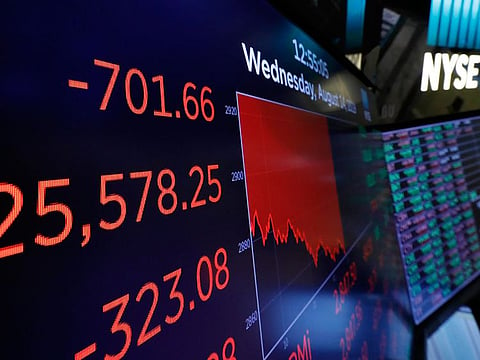Investors should time their switch back to cyclical stocks
Tech’s rise is likely to take a breather and not a moment too soon either

The pandemic has created an unprecedented scenario in global capital markets that cannot be compared to any other crisis known in modern times. Unlike in 1929 and 2008, this is not a financial crisis but a pandemic that directly affects supply channels, consumption capacity and domestic demand.
Unlike earlier financial crises, central banks and governments have reacted quickly and effectively by implementing policies that uphold the functioning of the financial system by flooding the market with liquidity. This enormous amount of liquidity was the main cause of the spectacular rally in stocks that, in some cases, have surpassed the highest levels reached prior to the crisis.
The stocks that have especially benefited from this meteoric rise are tech stocks, the so-called FAANGs (Facebook, Amazon, Apple, Netflix and Google) the weighting of which in the S&P500 index is greater than 20 per cent. The increase in the use of technologies in an environment of social distancing is the reason why these companies have seen their earnings increase during the crisis, causing their performance to diverge sharply from cyclical stocks that depend to a greater extent on economic growth.
The stocks most negatively impacted by the social distancing protocols mainly operate in services, retail, travel and tourism, and fast moving consumer goods. They have been relegated from this upward wave with stocks of airlines and hotel chains struggling to rebound from levels brought about by the March crash, which, in many cases, reduced their value by more than 50 per cent.
Go counter?
Is it time to buy the stocks hardest hit by the crisis? There are some considerations to examine before we jump on this bandwagon.
First, from a risk management point of view, diversification of investment portfolios is always advisable. Maintaining a high percentage of the portfolio in just one sector exponentially increases its vulnerability, even more so when this sector has experienced an atypical performance, as is the case with tech stocks - and which is beginning to show signs of exhaustion.
In fact, the market has experienced abrupt corrections in the Nasdaq100 index motivated by an excess of institutional long positioning - through financial derivatives such as options - that threaten a downward movement precipitated by forced closures of positions.
Second, the investment rotation process that investors will begin to carry out sooner or later will obviously be directed towards those securities that have lagged behind in this latest purchase flow, balancing market behavior and erasing differences between stocks.
Stick with stocks?
This move would only occur in a generally positive or bullish environment on the stock markets. Is this environment a realistic possibility? From a point of view of monetary and fiscal policies, the circumstances could not be more favorable.
The large amount of liquidity in the market is an unparalleled boost for markets to rise, but we must also add the historically low interest rate factor, especially in the US. It makes company valuations more attractive due to low financing costs.
These exceptionally low interest rates make the investment alternative to the stock markets, which is fixed income, a more attractive proposition for investors. For instance, if we analyze a 10-year US government bond in terms of price-earnings ratio, we reach up to 180x, which is well above the better performing stocks.
There is only one unknown in the equation to be solved, this is the evolution of the pandemic. For stocks hardest hit by the crisis to gain ground again, domestic consumption needs to return to previous levels or at least begin to show signs of growth. And for this, the epidemiological situation must improve.
Despite the fact that the numbers of infected have worsened again in what is considered a second wave, we have seen a more cautious policy responses to prevent closing down economies once again. Meanwhile, given the number of vaccine trials, the moment when at least one vaccine against the disease will be proven as safe and effective is getting closer.
These two aspects are fundamental for the gradual recovery of consumption, the improvement of the labor market and the end of the social distancing measures. In conclusion, it is quite reasonable to think that an increase in the exposure of portfolios to cyclical stocks - the ones most hit by the crisis - is in line with both fundamental assessment and risk management criteria.
- Miguel A. Rodriguez, Chief Market Analyst at Capex.com.









